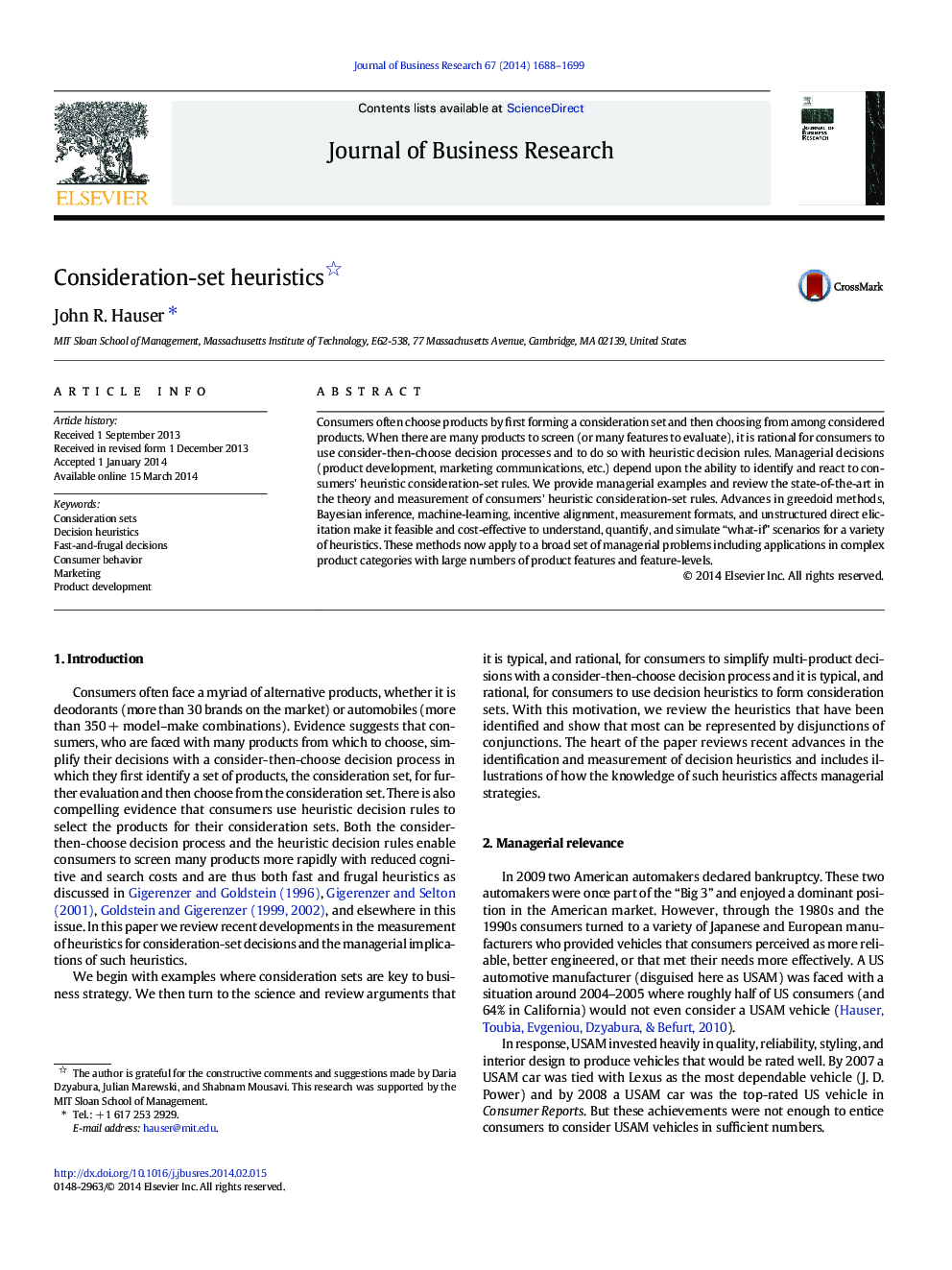| Article ID | Journal | Published Year | Pages | File Type |
|---|---|---|---|---|
| 1017625 | Journal of Business Research | 2014 | 12 Pages |
Consumers often choose products by first forming a consideration set and then choosing from among considered products. When there are many products to screen (or many features to evaluate), it is rational for consumers to use consider-then-choose decision processes and to do so with heuristic decision rules. Managerial decisions (product development, marketing communications, etc.) depend upon the ability to identify and react to consumers' heuristic consideration-set rules. We provide managerial examples and review the state-of-the-art in the theory and measurement of consumers' heuristic consideration-set rules. Advances in greedoid methods, Bayesian inference, machine-learning, incentive alignment, measurement formats, and unstructured direct elicitation make it feasible and cost-effective to understand, quantify, and simulate “what-if” scenarios for a variety of heuristics. These methods now apply to a broad set of managerial problems including applications in complex product categories with large numbers of product features and feature-levels.
